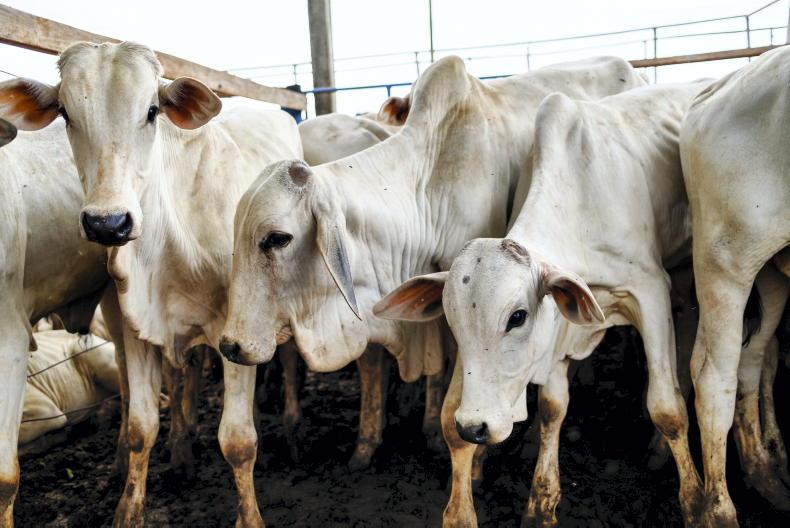Despite having lived through wrenching changes in how people regard food, it was only when it was spelled out for me last week at a fascinating conference put on by Teagasc, in association with Bord Bia, that the penny really dropped.
Originally, when we joined the European Community in 1973, Europe was far less than self-sufficient in food. Prices to farmers were guaranteed to stimulate production and limits on production were not mentioned – until the dairy quota of 1984 came in. The emphasis was on food self-sufficiency for Europe and only the recently joined UK really complained about the European price of food which was roughly twice that of the New Zealand lamb and dairy products they had been used to.
There was little discussion on quality and safety. The first real public controversy was on the place of hormones in the mid to late 1980s and after a series of food scandals and discoveries of illicit compounds being used, they were all banned.
The progression of food issues was excellently outlined at the conference by Prof Wim Verbeke of Ghent University in the Netherlands. He reminded us of how common worries on food safety then reached a whole new level of public concern with the horrific BSE outbreaks in the late 90s and very early 2000s. These led to the development of the specialist European Food Safety organisation and its Irish equivalent, the Food Safety Authority. Safety was the all-pervasive food issue of the day.
When the safety issues were partially resolved, at least to the extent that they disappeared from the headlines, the food issue of the time became price but that was quickly overtaken by authenticity as the horsemeat scandal hit the headlines.
Authenticity has a much wider connotation today as the emphasis swings to human health effects and the effects of production systems on the environment.
Suddenly, plant-based diets are all the rage and ruminants are classed as environmental villains because of methane and greenhouse gas emissions.
Consumers, as Bord Bia reminded us, now want food not just to satisfy physical hunger but to promote health, brain development and longevity. The evidence is mounting that good, conventional foods can meet these requirements and that ruminant greenhouse gas emissions can be reduced by at least 30% by a combination of vaccination, breeding and inhibitor feedstuffs.
Read more
Farmer Writes: consumers want high standards at low prices
Global report: stories from around the world
Despite having lived through wrenching changes in how people regard food, it was only when it was spelled out for me last week at a fascinating conference put on by Teagasc, in association with Bord Bia, that the penny really dropped.
Originally, when we joined the European Community in 1973, Europe was far less than self-sufficient in food. Prices to farmers were guaranteed to stimulate production and limits on production were not mentioned – until the dairy quota of 1984 came in. The emphasis was on food self-sufficiency for Europe and only the recently joined UK really complained about the European price of food which was roughly twice that of the New Zealand lamb and dairy products they had been used to.
There was little discussion on quality and safety. The first real public controversy was on the place of hormones in the mid to late 1980s and after a series of food scandals and discoveries of illicit compounds being used, they were all banned.
The progression of food issues was excellently outlined at the conference by Prof Wim Verbeke of Ghent University in the Netherlands. He reminded us of how common worries on food safety then reached a whole new level of public concern with the horrific BSE outbreaks in the late 90s and very early 2000s. These led to the development of the specialist European Food Safety organisation and its Irish equivalent, the Food Safety Authority. Safety was the all-pervasive food issue of the day.
When the safety issues were partially resolved, at least to the extent that they disappeared from the headlines, the food issue of the time became price but that was quickly overtaken by authenticity as the horsemeat scandal hit the headlines.
Authenticity has a much wider connotation today as the emphasis swings to human health effects and the effects of production systems on the environment.
Suddenly, plant-based diets are all the rage and ruminants are classed as environmental villains because of methane and greenhouse gas emissions.
Consumers, as Bord Bia reminded us, now want food not just to satisfy physical hunger but to promote health, brain development and longevity. The evidence is mounting that good, conventional foods can meet these requirements and that ruminant greenhouse gas emissions can be reduced by at least 30% by a combination of vaccination, breeding and inhibitor feedstuffs.
Read more
Farmer Writes: consumers want high standards at low prices
Global report: stories from around the world









SHARING OPTIONS